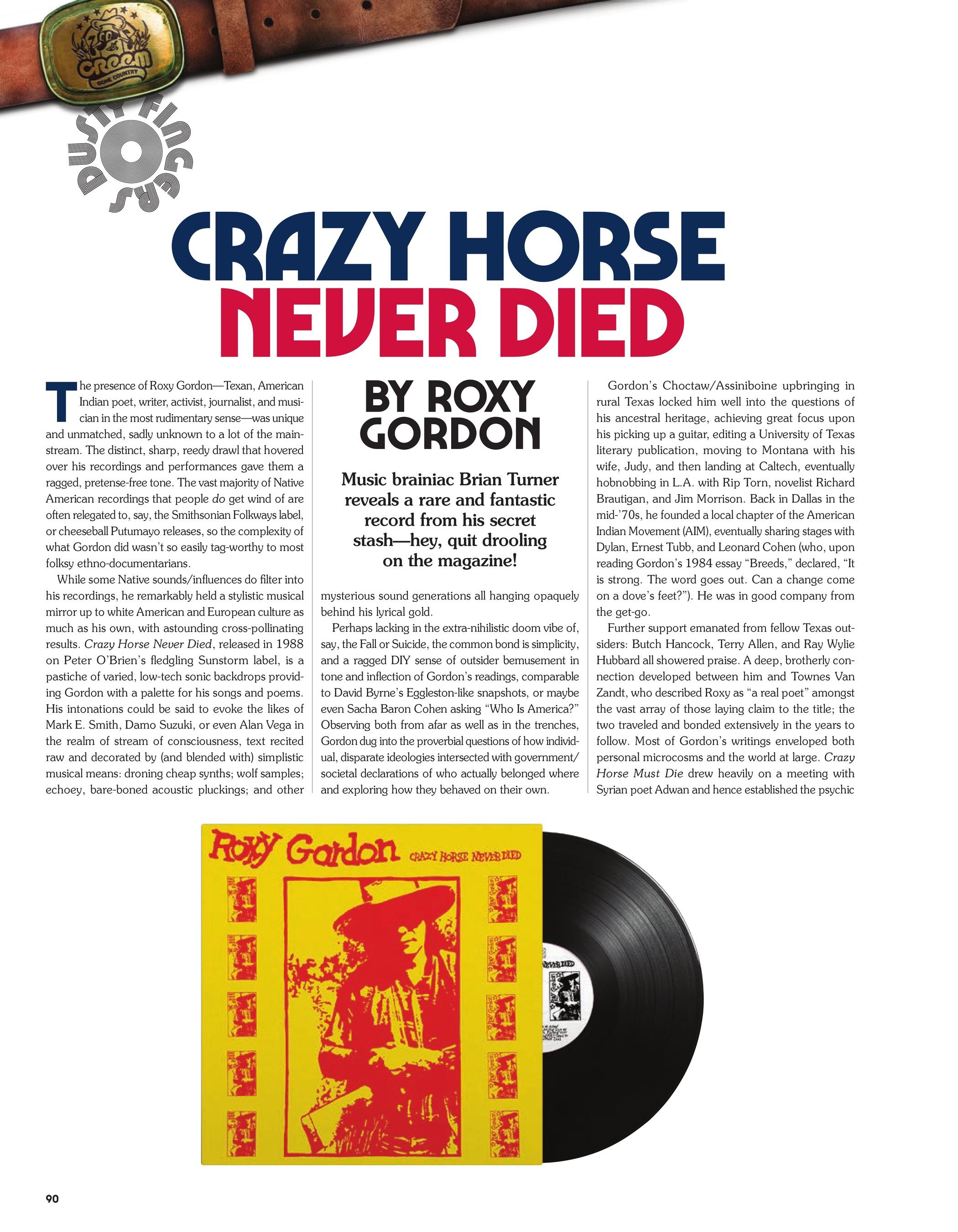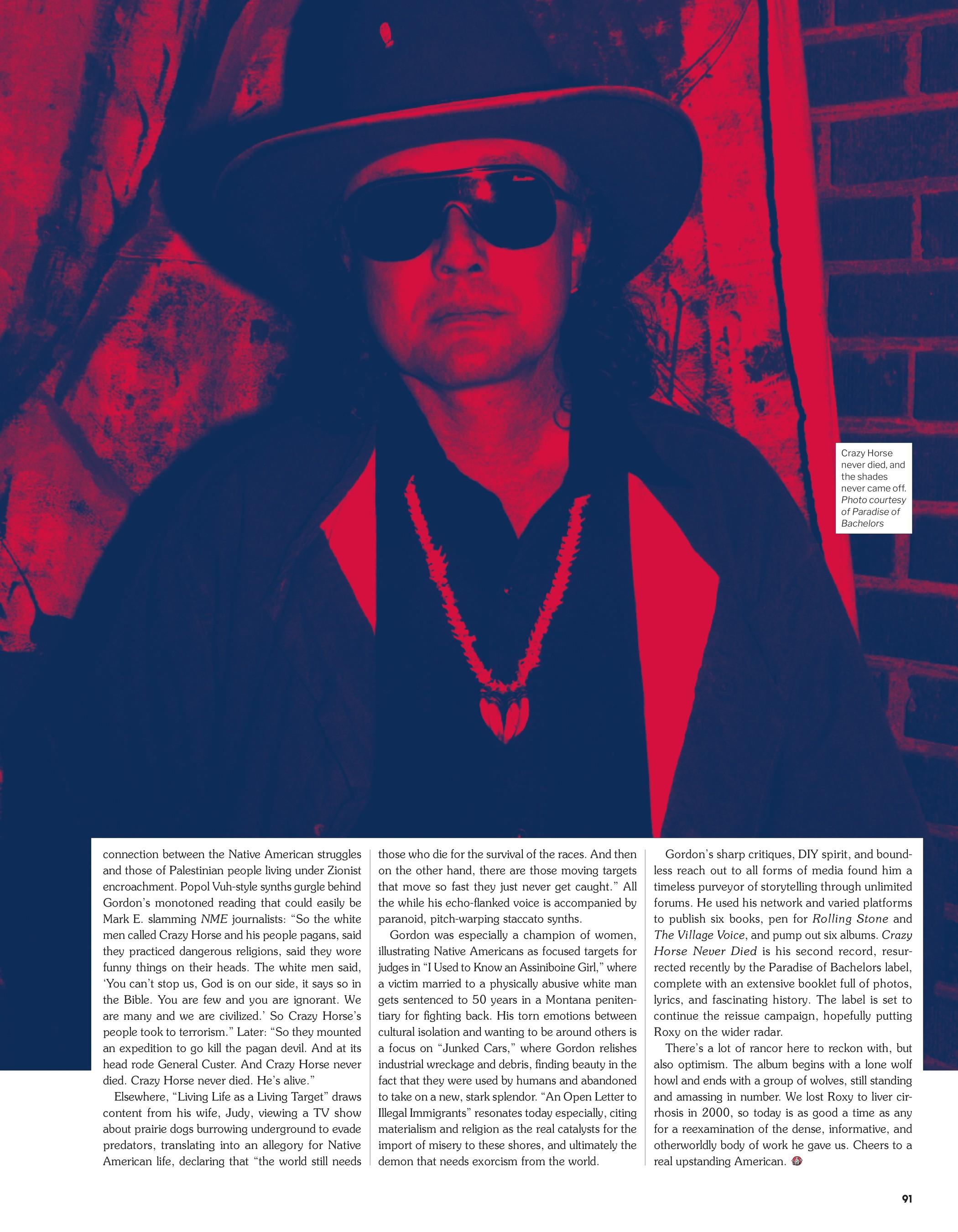Dusty Fingers
CRAZY HORSE NEVER DIED
Music brainiac Brian Turner reveals a rare and fantastic record from his secret stash—hey, quit drooling on the magazine!
September 1, 2024


Loading...

Music brainiac Brian Turner reveals a rare and fantastic record from his secret stash—hey, quit drooling on the magazine!


Loading...